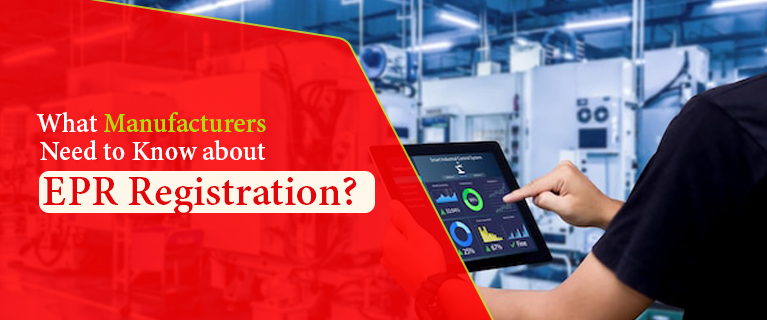The Importance Of EPR Certification In India
We strictly need a circular economy where we can eliminate what we don't need, innovate with new packaging, businesses, goods, and business models, and circulate all of the packaging we do use, keeping it in the economy and out of the environment, in order to stop the pollution generated by the packaging. However, sorting, collecting, and recycling packaging typically costs more to perform than it earns. The only tested and likely method to enable committed, ample, and recurring funding is EPR, or extended producer responsibility. Through the EPR Scheme, businesses who sell packaging are required to cover the cost of its collection, recycling, and sorting after use. In this article, we will discuss the significance of EPR.
What is EPR?
Let's first clarify the definition of EPR before moving on to its significance. Industrialised nations employ EPR, or extended producer responsibility Certification, as a legal tool to encourage and promote the recycling, reuse, and environmentally friendly disposal of electronic and polymer waste. It is the producer's duty under Extended Producer Responsibility to get rid of this trash. EPR regulations are introduced to ensure that producers and manufacturers are held responsible for reducing the amount of waste generated by their goods.
An EPR Certification is available to producers of electrical and electronic equipment waste, bulk consumers, recyclers, manufacturers, importers, dismantlers, and collection facilities.
EPR Certifications or Registrations are applicable to the following:
- Users that use electronic equipment in bulk.
- Recyclers, dismantlers and collection centres.
- Plastic manufacturers.
- Users that import electronic equipment in bulk.
Importance of EPR
Extended Producer Responsibility, or EPR Registration, is widely cited as a strategy to counteract planned obsolescence since it offers producers financial incentives to design for recycling and create products that last longer. By transferring some of the cost obligation to the manufacturer and battling intentional obsolescence, governments can lessen the financial burden of purchasing and managing waste.
One key benefit of EPR registration is that it works better when nations that export e-waste are obliged to take part. Regulation of e-waste encourages infrastructure to handle the garbage or embrace new manufacturing techniques. It gets harder for other nations to disregard the issues as more nations adopt similar policies. When China forbade the import of e-waste from the United States, trash piled up at ports.
For instance, the flexibility and indifference of exporters and producers have made it possible for there to be no infrastructure for recycling e-waste in the United States. Countries are being compelled to create infrastructure, and governments are being driven to impose stricter regulations on businesses as a result of the expanding e-waste dump.
Perks for EPR Registration Holders:
- Increased Customer’s trust and market reputation as an outcome.
- Coordination of the handling of e-waste in advance with linked units;
- A trustworthy image of the entire World.
- An inclusive framework facilitating cost-effective management.
Applicability of EPR for Plastic Waste
An EPR or Extended Producer Responsibility Certificate is mandatory for all the manufacturers, reusers, recyclers, dismantlers, etc.
For instance, suppose a manufacturer sells 90 metric tonnes of Electric Waste, then he/she is responsible to take care of the proper disposal of the waste. Here the PRO or Producer Responsibility Organisation comes into the picture. The producers can pay the PRO and ensure the proper disposal of waste.
Read Also This - Is EPR Certification Mandatory in IndiaConclusion
Following a discussion of the significance of EPR Certification, it becomes apparent that EPR, through corporate governance, legislation, and the influence of the consumer, may have a substantial impact on how businesses and the waste industry operate for decades to come.



Comments
Post a Comment